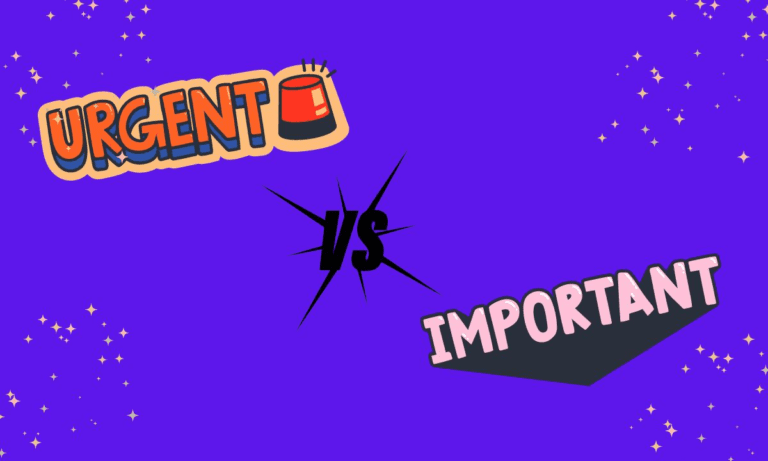Mastering Time Management Activities – How To Increase Productivity in 21st Century

Time management is a skill that everyone should master, regardless of their profession or age. Whether you’re a high school student juggling homework and extracurricular activities, a college student balancing study and social life, or an office worker dealing with multiple projects and deadlines, efficient time management can turn a chaotic day into a productive one.
The importance of time management goes beyond simply getting more done in a day. It’s about achieving a balance between work and personal life, reducing stress, and enhancing your overall quality of life. It’s about ensuring that you spend your time where it matters most, whether it’s on completing a project at work, studying for an exam, or spending time with family and friends.
However, mastering and learning time management skills doesn’t happen overnight. It requires practice and often involves changing old habits and developing new ones. This is where time management activities come in. These activities, which can range from games to training sessions to simple daily exercises, are designed to help you develop and enhance your time management skills in a fun and engaging way.
This comprehensive guide will explore various time management activities and how they can help you effectively manage your routine activities and boost productivity. We’ll delve into why time management is important, how you can use games and other activities to improve your skills, and how incorporating certain techniques into your daily life can make a significant difference in how you manage your time.
Understanding Time Management

Time management is a crucial aspect of life that involves the process of organizing, planning, and dividing your time between specific activities. It’s an essential skill that enables you to work smarter rather than harder, allowing you to get more done in less time, even when faced with tight deadlines and high-pressure situations.
The Essence of Time Management
At its core, time management is about efficiency and effectiveness. It’s about making the best use of your time to achieve your goals and objectives in the quickest possible way. But it’s not just about rushing through tasks. Good time management also means ensuring the quality of your work doesn’t suffer even as you work faster and more efficiently.
Time Management and Prioritization
A significant part of time management involves prioritization. With so many tasks vying for our attention, it’s essential to identify which tasks are most important and should be done first. Prioritizing tasks based on their urgency and importance can help prevent you from becoming overwhelmed and ensure that your energy is focused on the tasks that truly matter.
Time Management and Planning
Planning is another crucial component of time management. This could involve creating a daily to-do list, setting weekly or monthly goals, or even developing a long-term plan for your personal or professional life. Planning helps you visualize your tasks and deadlines, allowing you to allocate your time more effectively.
Time Management and Balance
Finally, good time management is about balance. It’s about finding the right equilibrium between work and personal life, between activity and rest. By managing your time effectively, you can ensure that you have enough time for work, leisure, relationships, and self-care. This balance is crucial for maintaining your mental and physical health and ensuring overall well-being.
Importance of Time Management
Effective time management skills are crucial in managing your day efficiently and ensuring that important tasks are completed within the set time limit. While it can be challenging to understand the ‘big picture’ in terms of effective time management, achieving well-organized time usage proves to be significantly beneficial. They also help reduce time wasters, enabling you to reduce your non productive time and focus more on cost and profit centers, contributing positively to your next performance review.
Boosting Productivity
One of the key benefits of time management is the boost in productivity it provides. By organizing tasks and setting clear priorities, we can accomplish more in less time. This not only allows us to meet deadlines but also frees up time for other activities, personal development, or relaxation.
Reducing Stress
Another significant advantage of good time management is stress reduction. When we’re constantly rushing to meet deadlines or juggling too many tasks at once, it can lead to burnout and increased stress levels. However, with effective time management, we can plan our tasks and distribute our workload evenly, thereby reducing the pressure and stress associated with heavy workloads. Numerous tech industry professionals, particularly those in the role of a video game developer, routinely navigate tight deadlines. Effective time management in such scenarios can significantly alleviate stress.
Enhancing Work-Life Balance
Effective time management is also essential for maintaining a healthy work-life balance. By managing our time well, we can ensure we have enough time for both our professional responsibilities and personal life. This balance is crucial to avoid burnout and to maintain overall well-being.
Improving Decision-Making and Problem-Solving Skills
Time management also plays a crucial role in enhancing decision-making and problem-solving skills. When we manage our time effectively, we can think more clearly and make better decisions because we’re not under constant pressure or stress. Similarly, with good time management, we can dedicate adequate and productive time both to brainstorming and problem-solving, which can lead to more effective solutions.
Time Management Games

One of the most engaging ways to practice time management skills is through time management games. These games are designed to challenge you with various tasks within a time limit, helping you understand how to prioritize tasks, manage resources, and make decisions.
The Appeal of Time Management Games
Time management games offer a fun and interactive way to learn and practice time management skills. They present players with a series of challenges or tasks that need to be completed within a certain time frame. These tasks often require strategic thinking, quick decision-making, and efficient task management – all essential elements of good time management.
Moreover, these games are not just for children or teenagers. Many adults find them equally engaging and beneficial. Whether it’s a simple mobile game or a complex computer game, time management games can provide valuable lessons in a fun and low-stress environment.
Examples of Time Management Games
There are countless time management games available, each with its unique challenges and lessons. For instance, a video game like ‘Game Dev Story’ requires players to manage their time while also dealing with other aspects of game development, like managing team members and ensuring that all parts of the game are moving in the same direction.
Another popular time management game is ‘Diner Dash’, where players need to manage a busy restaurant by serving customers, cleaning tables, and handling orders within a set time. This game teaches players about prioritization, multitasking, and dealing with stress – all crucial time management skills.
Learning Through Play
The beauty of time management games lies in their ability to teach through play. Players can learn important lessons about time management without even realizing they’re learning. They’re so engrossed in the game, trying to beat the clock and achieve high scores, that they absorb these lessons naturally.
For example, players learn quickly that if they don’t prioritize their tasks well, they won’t be able to complete the level. Or if they don’t manage their resources wisely, they won’t have enough to finish the game. These lessons, learned in the context of a game, can then be applied in real-life situations.
The Impact of Time Management Games
Time management games can have a significant impact on players’ time management skills. By repeatedly facing time-related challenges in the game, players can develop a better sense of how to handle similar challenges in real life. They can learn how to prioritize tasks, work more efficiently, and stay calm under pressure. One can always read more time management books, but games are much more fun.
Time Management Training Session

Time management training sessions are structured programs designed to help individuals improve their ability to manage time effectively. These sessions can take various forms, including workshops, seminars, online courses, and even games.
A time management training session could involve a simple puzzle challenge using colored blocks. In this game, the goal is to arrange as many blocks as possible within a given time frame, simulating the need to organize tasks efficiently.
Another effective time management exercise involves tracking your activities in hourly or one hour blocks for one week. This activity helps you identify where you spend most of your time and can highlight areas where you waste time, such as excessive coffee breaks.
The Purpose of Time Management Training Sessions
The primary purpose of time management training sessions is to equip participants with the necessary skills and techniques to manage their time more effectively. This not only boosts productivity but also reduces stress, improves work-life balance, and enhances overall quality of life.
These sessions typically cover a range of topics, including setting goals, prioritizing tasks, planning and scheduling, dealing with interruptions, and managing procrastination.
Activities in Time Management Training Sessions
A typical time management training session might involve a variety of activities designed to engage participants and provide practical, hands-on experience in managing time. For example, one popular activity is the ‘Puzzle Challenge’.
In this game, participants are given a set of puzzle pieces and a limited amount of time to assemble the puzzle. This activity simulates the need to organize tasks efficiently and complete them within a given deadline.
Another common activity is the ‘Time Audit’, where participants track how they spend their time over a week. This exercise provides valuable insights into where most of their time goes and helps identify potential time-wasters.
Benefits of Time Management Training Sessions
Participating in time management training sessions can have numerous benefits. Firstly, it can lead to increased productivity as participants learn how to use their time more efficiently. Secondly, it can result in reduced stress levels as participants gain control over their time and tasks.
Additionally, these sessions can improve decision-making abilities. By learning how to prioritize tasks and allocate resources, participants can make better decisions under pressure.
Implementing Lessons from Training Sessions
The real test of any time management learning training game or session is how well participants can apply what they’ve learned to their daily lives. After attending a time management training session, participants should be able to implement the techniques and strategies they’ve learned to manage their time more effectively.
For example, participants might start using a planner or digital time management tool to schedule their tasks and deadlines. They might begin delegating tasks more effectively or start taking regular breaks to avoid burnout. Ultimately, the goal is to make lasting changes that lead to improved time management.
Key Time Management Activities

Time management activities are practical exercises that help individuals understand and develop effective time management skills. These activities range from simple daily routines to more complex tasks and games, all aimed at enhancing one’s ability to manage time efficiently.
The Mayo Jar Activity
One of the most popular time management activities is the ‘Mayo Jar Activity’. This activity involves filling a jar with large rocks (representing important tasks), smaller pebbles (less critical tasks), and sand (tasks of little or no consequence). The key lesson here is understanding that if you start with the sand, there won’t be room for the rocks. This activity demonstrates the importance of prioritizing tasks effectively.
Online Games as Time Management Activities
Online games also serve as excellent time management activities. For both high school students and college students, these games can be a fun and engaging way to practice time management skills. These games often involve completing tasks within a given time limit, requiring players to prioritize tasks, manage resources, and make decisions under pressure.
Daily Planning
Daily planning is another essential time management activity. This could involve creating a to-do list each morning, scheduling tasks on a digital calendar, or setting goals for the day. Planning your day in advance helps you stay organized and focused, reducing the likelihood of procrastination and time-wasting.
Time Tracking
Time tracking is a useful activity for improving time management skills. This involves keeping a record of how you spend your time throughout the day, which can provide valuable insights into how much time you spend on different tasks and where you might be wasting time. There are various apps and productivity tools available that can make time tracking easier and more efficient.
Regular Breaks
Taking regular breaks is another key time management activity. Contrary to what some might think, taking breaks can actually improve productivity and focus. This is because breaks give your brain a chance to rest and recharge, preventing burnout and maintaining high levels of performance throughout the day.
Delegation Practice
For those in leadership or management roles, practicing delegation between team member can be a valuable time management activity. Delegation involves assigning tasks to other team members, freeing up your own time for high-priority tasks. This not only improves efficiency but also helps develop the skills and abilities of your team members.
Further Time Management Techniques

Other techniques that can boost productivity include delegation skill practice and practicing critical thinking. Delegation allows team members to take on tasks that align with their skills, freeing up your time for other important tasks. Critical thinking, on the other hand, helps in making quick, effective decisions, saving time, and reducing errors.
Understanding and respecting your circadian rhythm can also enhance your time management skills. This involves scheduling routine activities around your natural energy peaks and troughs throughout the day.
While activities and games can help enhance your time management skills, there are also various techniques you can utilize to manage your time more effectively. These techniques can be incorporated into your daily routine to help you stay organized, focused, and productive.
The Eisenhower Matrix
The Eisenhower Matrix is a popular time management technique that involves categorizing tasks based on their urgency and importance. The matrix consists of four quadrants: urgent and important, important but not urgent, urgent but not important, and neither urgent nor important. By classifying tasks in this manner, you can prioritize them more effectively and manage your time more efficiently.
The Pomodoro Technique
The Pomodoro Technique is another effective time management method. It involves breaking your workday into 25-minute intervals (known as “pomodoros”) separated by short breaks. This technique helps maintain focus and productivity while also preventing burnout.
Time Blocking
Time blocking involves allocating specific time slots for different tasks or activities throughout your day. This technique can be particularly useful for managing large projects or juggling multiple responsibilities. By dedicating specific times for certain tasks, you can ensure that each task receives the attention it requires.
The 80/20 Rule (Pareto Principle)
The 80/20 rule, also known as the Pareto Principle, states that 80% of results come from 20% of efforts. In terms of time management, this means focusing on the tasks that will yield the most significant results. Identifying and concentrating on these high-impact tasks can greatly improve efficiency and productivity.
The ABCDE Method
The ABCDE method involves ranking tasks from A to E based on their importance. ‘A’ tasks are the most important, while ‘E’ tasks are the least. This method helps you prioritize tasks effectively, ensuring that you focus on the most critical tasks first.
Goal Setting
Setting clear and achievable goals is a crucial part of effective time management. Goals give you a direction and purpose, helping you stay focused and motivated. Whether it’s setting daily goals or long-term objectives, goal setting can significantly enhance your time management skills.
Mindfulness
Lastly, practicing mindfulness can also improve your time management. Being mindful means staying present and focused on the task at hand, rather than getting distracted or worrying about other tasks. This can increase productivity and efficiency, allowing you to make the most of your time.

Conclusion
Time management activities, when practiced regularly, can significantly improve your time management skills. Whether it’s through playing games, conducting exercises, or implementing techniques in your daily life, you can transform your time management abilities and see a direct link in increased productivity. Remember, every second counts, so make sure you’re spending yours wisely and avoid distractions that affect time management!
Mastering time management can greatly enhance our professional and personal lives by helping us manage meeting deadlines, juggling multiple responsibilities, or finding time for relaxation and personal growth.
Through various activities, games, and techniques, we can practice and improve our time management skills. From the Mayo Jar Activity teaching us about prioritization to the Eisenhower Matrix helping us categorize tasks based on urgency and importance, each activity or technique offers valuable lessons in managing time effectively.
Moreover, time management training sessions and online games provide an interactive and engaging way to learn these skills. They offer a low-stress environment where we can make mistakes, learn from them, and improve our skills without facing real-world consequences.
Incorporating these practices into our daily routine can yield significant benefits. Not only can we boost our productivity and efficiency, but we can also reduce stress, improve work-life balance, and enhance our overall quality of life.
Key Takeaways
- Understanding Time Management: Time management involves prioritization, planning, and balance. It’s about working smarter, not harder, to achieve our goals.
- Importance of Time Management: Effective time management boosts productivity, reduces stress, improves work-life balance, and enhances decision-making and problem-solving skills.
- Games: These games provide a fun and interactive way to practice time management skills, teaching players about prioritization, multitasking, and dealing with stress.
- Training Sessions: These sessions equip participants with the necessary skills and techniques to manage their time effectively, leading to increased productivity, reduced stress, and improved decision-making abilities.
- Activities and Techniques: From the Mayo Jar Activity to the Eisenhower Matrix, these activities and techniques help individuals understand and develop effective time management skills.
By understanding and practicing these aspects of time management, we can navigate our busy schedules more effectively, making the most of our time and achieving our goals more efficiently.





